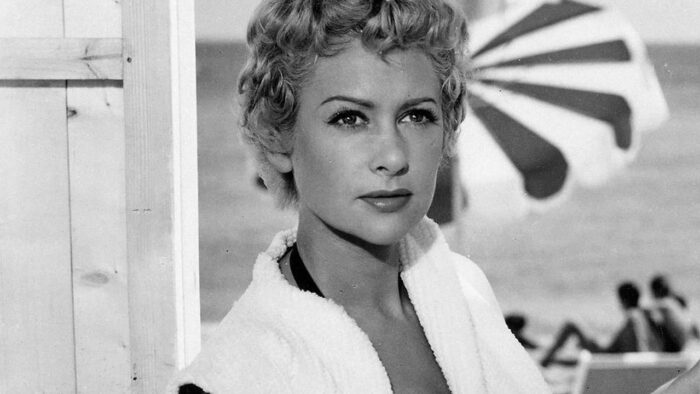The more often I visit the Midnight Sun Film Festival, the more it resembles a beach to me: Lots of happy people share not too much space trying to relax and have fun, with the town around turning into a gaudy resort. Yet when you look at what’s happening at the fringes, in the shadow, a bit apart from this jolly scene of laughter and games, you sometimes find yourself in the middle of some small drama that will leave its participants with probably awkward memories for years to come. We might associate beaches with joy, but there’s a deeply melancholic side to them as well. Please mind, though, that the films aren’t exclusively set on the beach – same way we leave the festival grounds from time to time for a swim in the river or to visit a SoPa match on the local pitch, the movie characters spend time in hotels or traveling around, etc.
That our little masterclass would be Central and Eastern European heavy was not clear at the outset, even if it looked right in the end as Midnight Sun audiences do love the classics from that sphere. And thus, it felt simply natural that the selection’s cornerstone was Rangel Vulchanov’s Sun and Shadow (1962): Young people from both sides of the Iron Curtain meet at a fancy Bulgarian beach resort in high summer, flirting shyly, discovering their differences – with the shadow of atomic annihilation starting to slowly darken the sunny mood.
The next film on the list was Alberto Lattuada’s The Boarder (1954) which for its title alone was a must (plus, decades ago, Lattuada had been a guest of the festival). But besides that: The Boarder remains one of Italian film history’s biggest scandals, as well as one of its most notorious censorship cases, as the story of society’s bigotry hit home a bit too close for the Democrazia Cristiana-mindset of an era in which only nice things happened on the beach…
And sometimes, history is made where the sand ends and the waves call. Enter Gidget Goes Hawaiian (1961) by Peter von Bagh-favorite Paul Wendkos, a seminal work in the annals of beach culture as it moved surfing from nerd to mainstream culture. A monument of a very different kind is Joachim Hasler’s musical Hot Summer (1968), a classic of DEFAtainment venerated in the GDR turned post ’89 in an act of semi-conscious political aggression into a proto-camp cult film by FRG audiences. Yes, this wholesome, sweet, and casually sexy story of Leipzig girls and Karl-Marx-Stadt boys carries a lot of history…
The last title, again, almost wrote itself into the program: As all things have to come to an end, Tadeusz Konwicki and Jan Laskowski’s The Last Day of Summer (1958) was already because of its title again a must – also because we need to see the beach almost empty of people, the sand dancing freely in the fast arriving early autumn winds. Here, memories are not made – it’s the remembrance of horrors past not too long that drives the two lonely and nameless characters towards each other. Sometimes, beach days can offer the chance for a new beginning.
Olaf Möller
